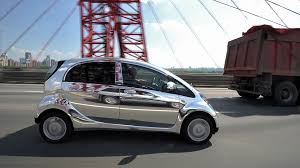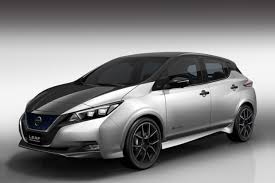The reasons why electric cars are better than hydrogen cars are named
 The fuel cell vehicles despite its apparent efficiency and environmental friendliness — are doomed. This is mainly due to the emergence of stronger competitors among electric vehicles. This opinion was expressed on the YouTube channel Tailosive Tech with the provision of quite interesting and at the same time obvious factors why this is so.
The fuel cell vehicles despite its apparent efficiency and environmental friendliness — are doomed. This is mainly due to the emergence of stronger competitors among electric vehicles. This opinion was expressed on the YouTube channel Tailosive Tech with the provision of quite interesting and at the same time obvious factors why this is so.
Factor 1: it is easier to charge an electric car from the mains than to fill it with hydrogen
The first reason why electric cars will eventually win, the observer calls the obvious thing — electric cars are able to receive energy for movement from any energy point that can be found on the street. That is, nominally, any outlet is a source of replenishment of the power reserve.What about fuel cell cars? They need whole refueling complexes, which are not so much around, and sometimes they do not exist at all. Many drivers will buy a car that has nowhere to fill?
Factor 2: hydrogen is not environmentally friendly and more expensive than electricity
The infrastructure problem is only the most obvious disadvantage of hydrogen cars (FCEV). On the channel rises and another problem — how much does the kilometer run. Yes, FCEV offer a good power reserve, but their refueling is expensive and this is not taking into account the fact of the scale of hydrogen production, which is very limited. And not taking into account the fact that it is made from natural gas and in fact is a fossil fuel, which has an extremely negative impact on the environmental performance of hydrogen cars as such.
Factor 3: improving FCEV and increasing their efficiency is very expensive
The third reason for the obvious superiority of clean electric cars (BEV) over hydrogen (FCEV) is that the latter require much more investment in their revision to become cheaper and work better, while electric cars are already proving their effectiveness.
Factor 4: fire safety of clean electric vehicles is much higher
Cars on fuel cells, in General, are very safe and successfully tested by crash tests, at the same time because of the presence of cylinders under pressure, they can be considered more dangerous than clean electric cars. In addition, the infrastructure for hydrogen refueling is also more dangerous than electric charging stations, especially since one case of an explosion at such a facility has already been recorded in Norway.




